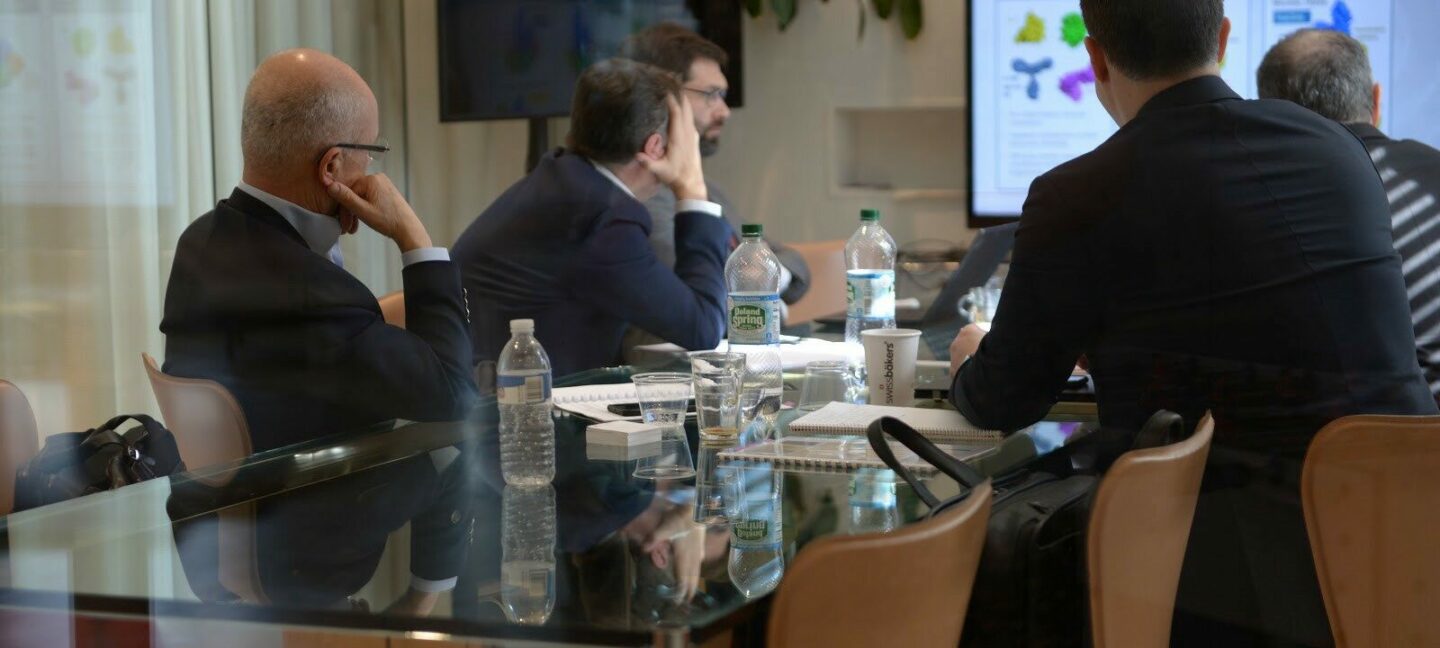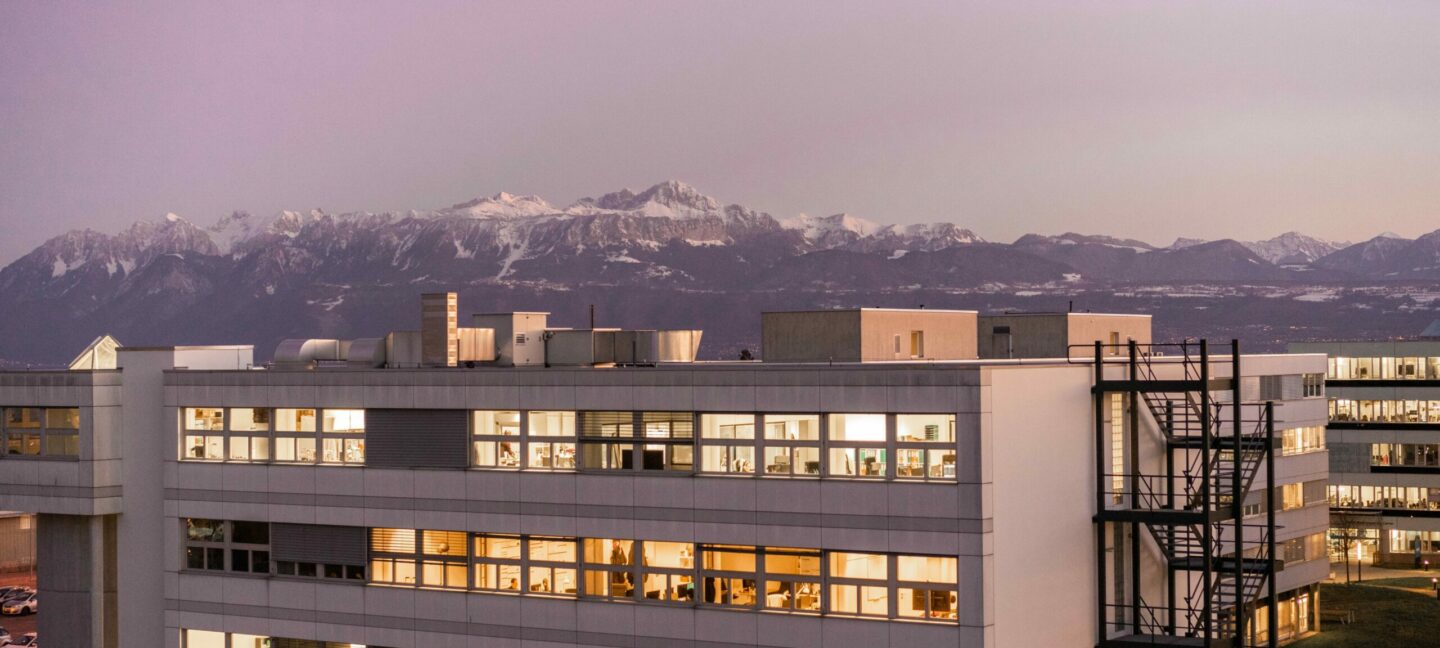
It is no secret that Boston and Cambridge are two of the most important cities globally in the biotech industry. In the past few months, for example, the region has been home to groundbreaking advances in the battle against COVID-19, with Cambridge-based Biopharma company Moderna producing one of the first-ever COVID-19 vaccines approved for emergency use by the US FDA.
According to a report from the Massachusetts Biotechnology Council, roughly 500 biotech companies called Cambridge and Boston home in 2019, collectively employing more than 75,000 people. In Cambridge alone, biopharma companies received a whopping $2.8 billion in biotech venture capital investments and accounted for “78% of all Massachusetts biotech companies that went public.” Most recently,
So how has the greater Boston area rapidly become a global leader in biotech? That’s exactly what Debiopharm, a Lausanne, Switzerland-based biopharma development company wants to better understand, with the ambition to stimulate the creation of a similar innovation hub focused on cancer and antibiotic therapies in the Lake Geneva region in Switzerland.
Debiopharm was founded in 1979 as a biopharmaceutical development company with a strong focus in oncology and has quickly become a leader in the Swiss biopharma industry. While the company is best known for its innovative work in cancer drug development, it has been increasingly investing in digital health via its strategic digital health investment fund. As the biotech industry is surging in Massachusetts, Debiopharm has been looking to the region’s past successes and future trends in the biotech industry to push the envelope in Switzerland.
At a biotech roundtable hosted by Swissnex Boston in early 2020, five high-level representatives of Debiopharm were joined by leaders in the biotech industry from Ipsen, Xontogeny, Massachusetts Life Sciences Center (MLSC), and SOPHiA GENETICS to share lessons learned and delve deeper into the successes of the biotech industry in Boston and Cambridge.

Location and government policy play a critical role
It is interesting to note that many e-health actors are also concentrated in the Boston/Cambridge area, despite the strong digital ecosystem of California because all these technologies are based on content emerging from the life science and thus benefit from the proximity to the many centers of excellence in and around Boston. For Veronique Riethuisen, former SVP BD & Alliance at Ipsen (now working as an independent business development consultant), proximity is a “very important element in creating a strong innovation hub, as many networking events, as well as chance, encounters foster new ideas and positive emulations.”
Boston and Cambridge have been successful in the biotech industry largely thanks to strong government support via incentives and infrastructure investments. It all started in the early 70s with a political decision to allow, through municipal zoning of the Cambridge area, the implementation of companies working on the recently established technology of recombinant DNA.
Since then, continuous support from the state-funded MLSC, which was the main funnel for Massachusetts’ $1 billion commitment to the biotech industry over 10 years, has been a key driver of the expansion of the biotech industry. At the roundtable, Chris Gilrein, former MLSC Director of Business Development (now Executive Director of TechNet), remarked that a combination of strong infrastructure, regulatory certainty, and a culture of innovation allowed Cambridge to lead the charge of the biotech revolution in Massachusetts.
A strong academic ecosystem and entrepreneurial atmosphere
Shobha Parthasarathi, Vice President of External Innovation & New Ventures at Xontogeny emphasizes the benefit of playing to the ecosystem’s strengths and leveraging external factors such as international investments and the decision of other locations, such as Silicon Valley, to focus their attention elsewhere. “One has to pay attention to all aspects — access to capital, educated workforce, cost and quality of life, even simple things like access to airports that contribute to the creation of a hub,” she says.
In the case of Boston and Cambridge, that hub was built upon the existing strengths of the ecosystem — chiefly the high density of top-tier research universities (over 60 in the area) and some of the best hospitals in the nation. There is also a strong entrepreneurial mindset of the academic community; it is not uncommon that 1 postdoctoral fellow will have created over 10 new companies within his/her career.
Finally, it is well accepted that scientists can pursue their career in a very permissive and bidirectional path between academia and biotech “What began with a few solid foundational elements already in place quickly enabled the growth of the hub it has become today,“ Parthasarathi notes. Without those solid foundational elements, the Boston/Cambridge biotech industry would not have flourished to nearly the same level.
Roundtable participant Emily Paul of SOPHiA GENETICS discussed the advantages of working in such a highly saturated ecosystem. With offices in both Lausanne and Boston, SOPHiA GENETICS “has seen the many benefits of both biotech clusters,” says Paul. Her team has worked to support more than 1,000 medical institutions around the world with a decentralized approach.
“Nation to nation, there’s a wide range of needs and resources available for further genetic research, but what we see in these biotech clusters is hyper-focused. There’s almost a saturation of progress and growth that is inevitable when surrounded by similar excellence in your field. This factor is multiplied by the access to elite talent,” she says.
Investing in the future
Looking to the future, the roundtable participants agreed that much of the biotech world is converging around gene editing, personalized medicine, digital health, and telemedicine. In particular, the Boston region is looking to capitalize on the need for new capabilities in biotech manufacturing. A new consortium of Boston research institutions and industrial partners have come together to create a $50M center for gene and cell therapy manufacturing, opening up a new chapter in the region’s biotech boom.
While local venture capital and philanthropic funds continue to join forces in their efforts to drive life science research into the market, the state of Massachusetts is also doubling down on its commitment to biotech, investing in the data science workforce to continue to attract businesses to the area via the experienced workforce.
This forward-facing and comprehensive approach to evolving the biotech ecosystem has made the Boston-Cambridge supercluster a global leader in the industry. A key takeaway from participants of the roundtable was that this approach — maximizing the strengths of one’s own ecosystem to innovate and push the industry forward — can just as easily be applied to Lausanne.

Moving from hub to supercluster
Home to the University of Lausanne (UNIL), the renowned Swiss Federal Institute of Technology Lausanne (EPFL), the Swiss Institute of Cancer Research (ISREC), the Centre Hospitalier Universitaire Vaud (CHUV), the Ludwig Institute for Cancer Research, and many innovative biotech companies in the field of oncology diagnostic and therapeutic, the region of Lausanne already has the makings of a powerful biotech hub in oncology.
Additionally, Lausanne is in the right neighborhood, one of five major Swiss cities represented by the Greater Geneva Bern area (GGBa). The GGBa is the leading life sciences cluster in Europe, boasting more than 1,100 life sciences companies, an abundant supply of private equity and venture capital, more than 500 top-tier research labs, and more.
Based on this learning, Debiopharm is on the verge of launching a first initiative entitled IDEAL (Innovation DEbiopharm-Academia Leman), which will bring Debiopharm closer to academic groups of the Geneva and Lausanne Universities and Hospitals by collaborating on two fronts: the first one will enable the academic group to mature promising drug development programs in oncology and infectious diseases thanks to the financial and expert support of Debiopharm and the second one will allow Debiopharm to provide new therapeutic or diagnostic solutions to challenges encountered by oncologists.
If Lausanne and more broadly the Lake Geneva region can maximize these existing strengths in the ecosystem and capitalize on several innovative and comprehensive approaches, it has the potential to create a name for itself as a future biotech supercluster, much akin to the likes of Boston and Cambridge.